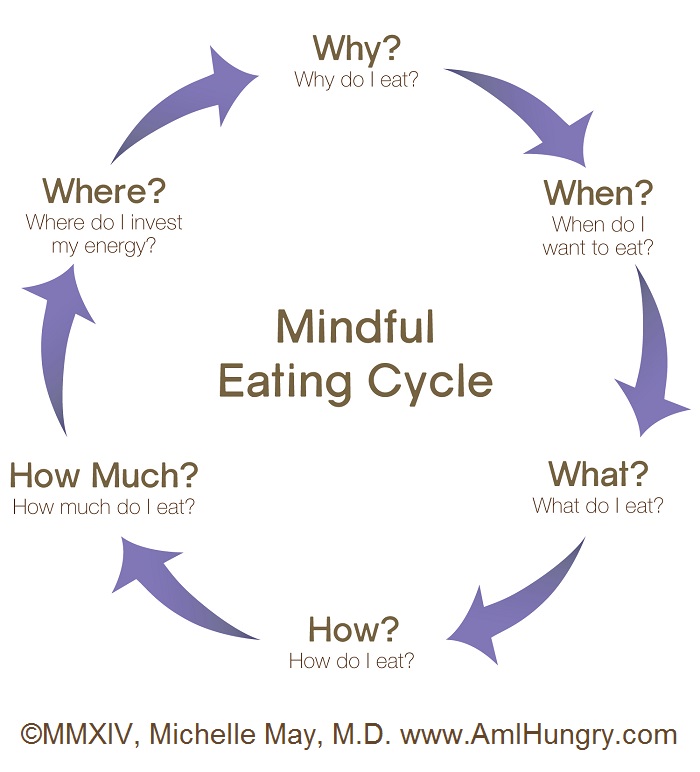We've probably all been out with friends and family members who ordered the salad "when they really wanted the pizza" or passed on going out for ice cream because they're "on a diet". Or maybe you're reading this thinking of a time you have purposefully restricted certain food groups for a diet or felt guilt after indulging in some sort of "bad foods" or overeating.
It can be hard to lose or maintain a normal weight for some people, but we all probably know a handful of people who seem to be able to eat whatever they want while easily maintaining a healthy body weight. Many factors go into weight and body size - genetics and physical activity play a large role in how much you weight, but what about eating behaviors - how do some people stay thin while seemingly never dieting?
The researchers at the New Cornell Food and Brand Lab wanted to find out the answer to this question - they looked into what the difference between those people who never worry about food and weight and "stay effortlessly slim" vs. those who struggle to maintain or lose weight and regularly dieted.
Much of the data on successful weight loss comes from the National Weight Control Registry, so in a similar fashion, Cornell researchers created the "Global Healthy Weight Registry" to survey adults who have maintained a healthy weight throughout their lives, asking them about their diets, exercise and daily routines. Once the participants were surveyed, they were split into TWO groups -
- Group 1: The Mindlessly Slim - Those who didn't maintain strict diets
- Group 2: Those who "dieted regularly, thought about food frequently and were highly conscious of what they ate"
What did the researchers find?
They documented initial findings in this infographic.
The first group (the Mindlessly Slim) were more likely to:
The first group (the Mindlessly Slim) were more likely to:
- eat high quality foods
- cook at home
- listen to inner cues
- not feel as guilty about over-eating
- be more conscious of the foods they're eating
- have more of an enjoyment-based approach to eating
Can we take these findings about the habits of the "Mindlessly Slim" and conclude that thin people don't diet?...Or maybe those "naturally thin" people don't diet because they have good genetics or a fast metabolism? Even if that were the case, the Mindlessly Slim participants were also employing some great healthy habits that may help them keep their waistlines in check, such as exercising, eating breakfast, having a salad at lunch, and snacking on things like fruit and nuts.
The lead researcher Anna-Leena Vuorinen reported, “These results are encouraging because they imply that instead of putting restrictions on one’s diet and avoiding favorite foods, weight gain could be prevented early on by learning to listen to inner cues and putting emphasis on the quality instead of the quantity of food."
The lead researcher Anna-Leena Vuorinen reported, “These results are encouraging because they imply that instead of putting restrictions on one’s diet and avoiding favorite foods, weight gain could be prevented early on by learning to listen to inner cues and putting emphasis on the quality instead of the quantity of food."
This is good news for those who struggle to lose or maintain their weight, and are tired of the strict rules and restrictions from the newest fad diet. We may be able to change our approach to losing and maintaining weight by adopting the habits of the "Mindlessly Slim."
In our culture, it can be easy to rush through meals, eating whatever is quick and easy, often eating on the go, standing-up, at our computers, or in front of the TV...but according to The Center for Mindful Eating, being distracted while eating prevents people from actually enjoying the food (contrary to the enjoyment-based approach to eating taken by the Mindlessly Slim). This "mindless eating" can lead to overeating, anxiety and stress, which ultimately can contribute to weight gain.
Resources for mindful and intuitive eating:
- The Center for Mindful Eating - Principles of Mindful Eating
- Evelyn Tribole, MS, RD and Elyse Resch, MS, RDN, CEDRD, Fiaedp, FADA - Intuitive Eating (great book/resource to get started!)
- Michelle May, MD, CSP - Am I Hungry?
Fad diets are unsustainable, but taking a more mindful approach to eating is a non-diet habit that is easy to adopt and doesn't require people to label foods as "bad" or "off-limits."
Thoughts? Have you ever tried incorporating mindfulness into mealtimes?
More Great Links:
Science Daily || The Mindlessly Slim
Avocado a Day Nutrition || What is Healthy?
Well+Good || Why the Healthiest People Don't Actually Diet
fANNEtastic Food || How to Eat Intuitively: A Guide to Mindful Eating
Hummusapien || What Food Bloggers Eat For Breakfast
NYT Well || How Meditation Changes the Brain and Body
Speaking with a Registered Dietitian can help you make peace with food and adopt habits in mindful and intuitive eating at meals. Make an appointment by calling the Sanford Sports Science Institute Dietitian today (605-312-7878).




No comments:
Post a Comment